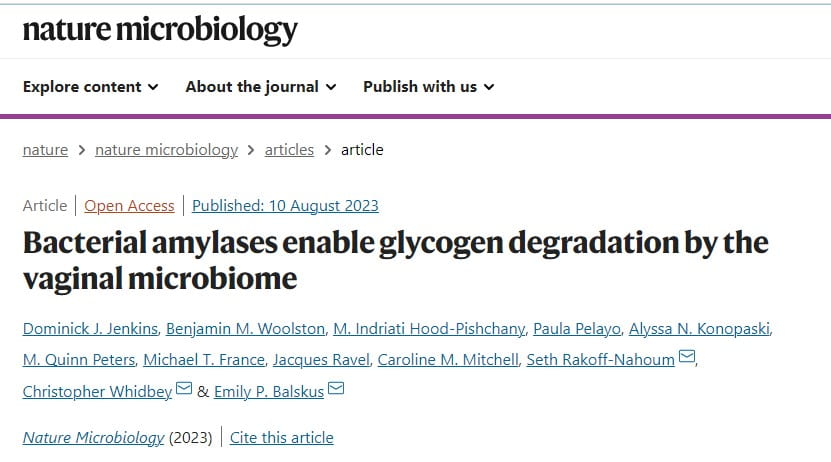Published today in Nature Microbiology, the last paper from Dr. Woolston’s time in the Balskus lab reports the discovery and characterization of bacterial amylases that enable degradation of glycogen by vaginal microbes. The human vaginal microbiota is frequently dominated by lactobacilli and transition to a more diverse community of anaerobic microbes is associated with health risks. Glycogen released by lysed epithelial cells is believed to be an important nutrient source in the vagina, but the mechanism by which vaginal bacteria metabolize glycogen was unclear. This paper describes the work of a team of collaborators with expertise in protein biochemistry, microbiology, metagenomics, activity-based protein profiling to identify and characterize a range of bacterial glycogen-degrading enzymes, as well as develop straightforward assays that could be used in a clinical setting to detect their activity. Read the full paper here: https://www.nature.com/articles/s41564-023-01447-2


Recent Comments